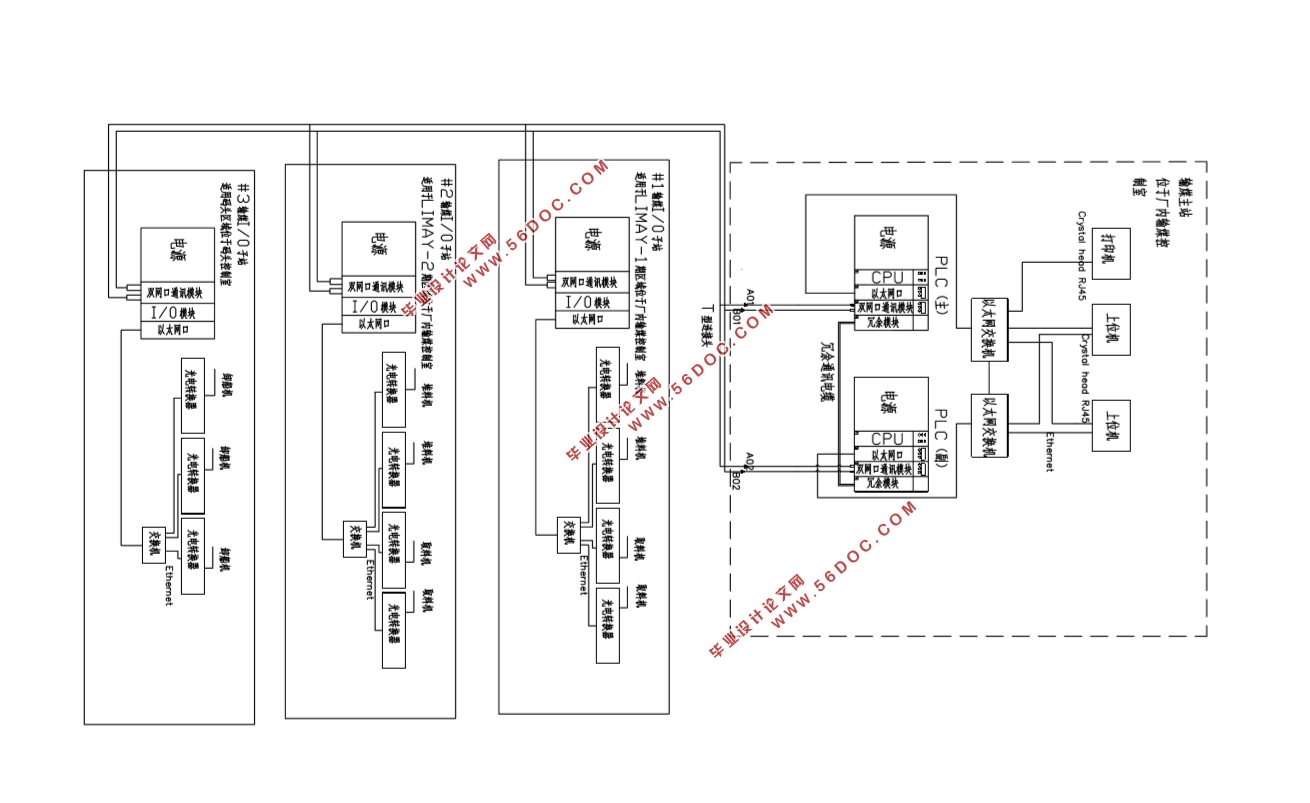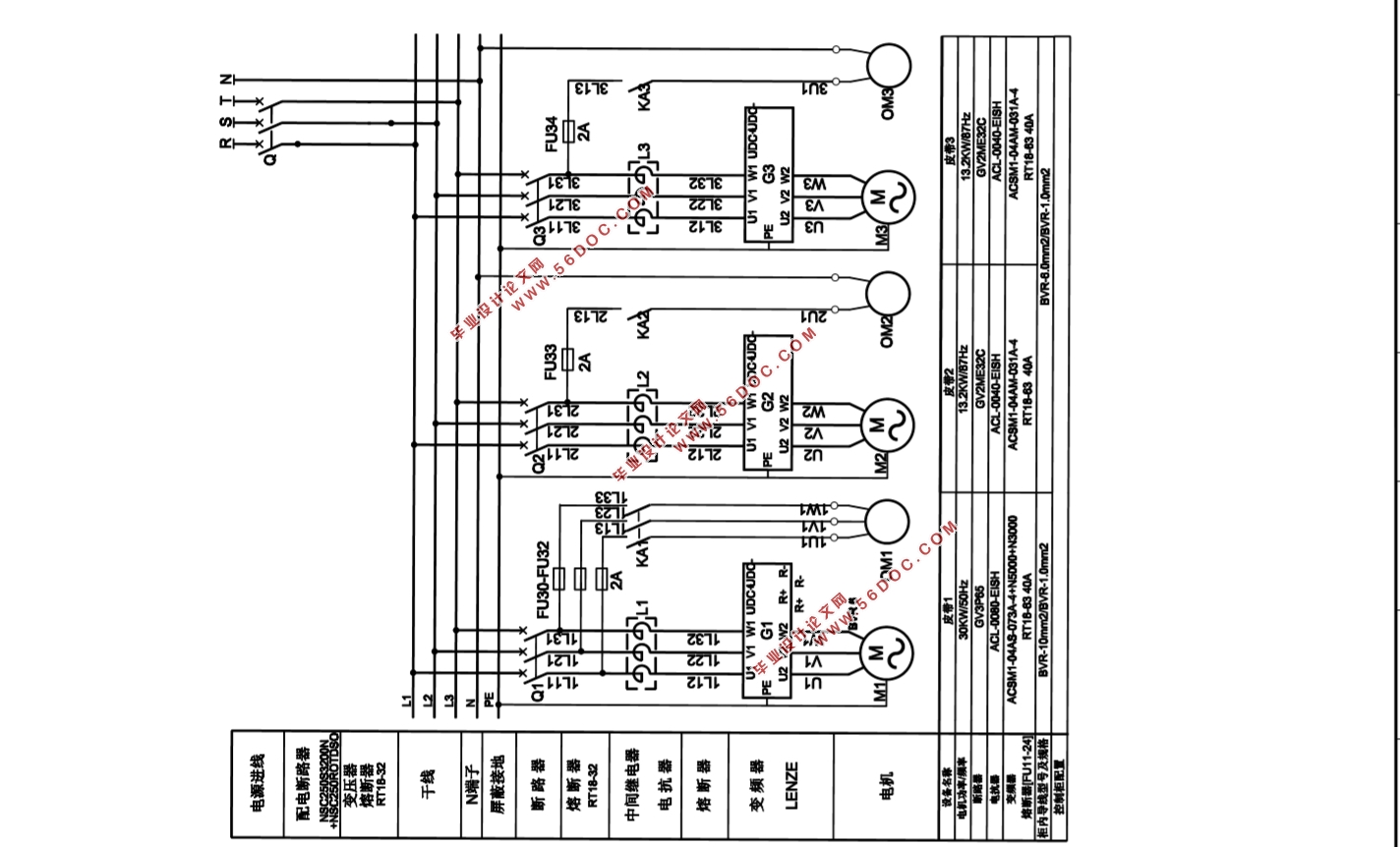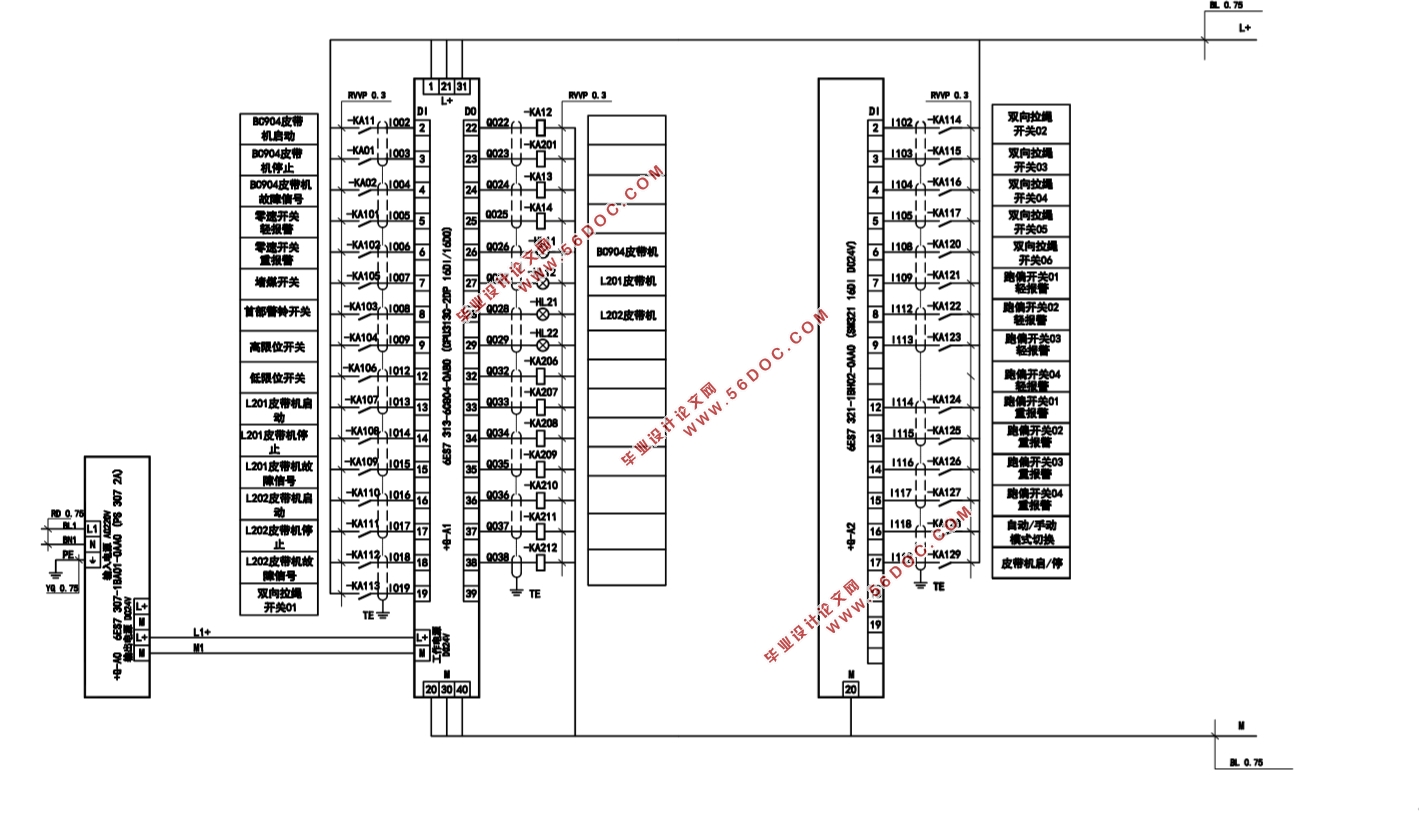基于PLC的电厂输煤控制系统设计(电气原理图)(任务书,开题报告,论文说明书11000字,PDF电气原理图,PDF电厂输煤系统原理图,PDFI/O配置图)
摘要
随着中国经济的快速发展,中国对电能的需求猛增,电力生产的运行效率和安全可靠性越来越重要。电厂输煤控制系统是火力发电厂的重要支撑系统,是保证机组稳定运行的重要条件。
本文根据实际需求,首先对电厂输煤系统进行了整体方案设计。在方案设计中,先完成了PLC的选型,接着给出了系统原理框图并对其进行的介绍。另外对冗余系统以及Modbus/Tcp协议进行了叙述。
输煤皮带机构控制系统的设计是本次设计的工作重点,论文中先对皮带机的控制需求进行了分析,然后进行了硬件设计和I/O点配置,接着完成了输煤皮带控制系统的软件设计,包括系统组态、程序设计、HMI界面设计。最后对软件进行了仿真调试,基本达到预期的效果。
关键词:电厂输煤;可编程控制器PLC;Modbus/Tcp协议;冗余系统
Abstract
With the rapid development of China's economy, China's demand for electricity is soaring, and the efficiency and reliability of power production are becoming more and more important. Coal handling system of power plant is an important support system of thermal power plant, and it is also an important condition to ensure the stable operation of power unit.
According to the actual demand, the overall design of the coal handling system of the power plant is firstly carried out. In the design of the scheme, the selection of PLC is completed first, and then the principle block diagram of the system is given. In addition, the redundant system and the Modbus/Tcp protocol are described.
The design of coal conveyer belt mechanism control system is the design of the focus, first on the belt conveyor control requirements were analyzed in the paper, and then the hardware design and I/O configuration, and then completed the software design of belt conveyor control system, including system configuration, program design, HMI interface design. Finally, the software is debugged and debugged, and the expected results are achieved.
Key words:power plant coal handling;programmable controllerPLC; Modbus/Tcp protocol; redundant system



目录
第1章 绪论 1
1.1 课题研究背景 1
1.2 国内外研究现状 1
1.2.1 电厂输煤系统相关技术的发展 1
1.2.2 PLC及其控制技术的发展 1
1.3 研究内容 2
第2章电厂输煤控制系统整体方案设计 3
2.1电厂输煤系统介绍 3
2.1.1 系统组成与工作流程 3
2.1.2 功能需求分析 4
2.2 控制系统总体方案设计 5
2.2.1 PLC选型 5
2.2.2系统整体设计 6
2.2.3 冗余设计 8
2.2.4 Modbus/Tcp协议 11
2.3本章小结 14
第3章 基于PLC的输煤皮带机构控制系统设计 15
3.1 皮带运输机构 15
3.1.1皮带运输机构组成与工作原理 15
3.1.2 皮带运输机构控制要求 16
3.3 硬件选型与组态 18
3.3.1 I/O点配置 18
3.3.2 系统组态 19
3.4 软件设计 19
3.5 仿真调试 23
3.6本章小结 25
第4章 结论 26
参考文献 27
|







